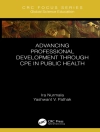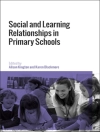Traditionally, assessment and evaluation have focused on the negative aspects or deficits of a client’s presentation. Yet strengths, health, and those things that are going ‘right’ in a person’s life are key protective factors in the prevention and treatment of manymental health problems. Thus, measuring strengths is an important component of a balanced assessment and evaluation process. This is the first compendium of more than 140 valid and reliable strengths-based assessment tools that clinicians, researchers, educators, and program evaluators can use to assess a wide array of positive attributes, including well-being, mindfulness, optimism, resilience, humor, aspirations, values, sources of support, emotional intelligence, and much more. These tools provide a clear picture of anindividual’s strengths while being easy to complete, score, and interpret.
The scales and instruments included are consistently formatted, are organized according to construct measures, and include tools for working with adults, couples, families, children, and special populations. They represent a wide range of theoretical approaches and were written by a diverse array of professionals, including social workers, psychologists, nurses, physicians, and sociologists.
Partial List of Instruments:- Adult Dispositional Hope Scale
- Assessing Emotions Scale
- Flourishing Scale
- Five Facet Mindfulness Questionnaire
- Positive States of Mind Scale
- A Measure of Expectations for Partner
- Multidimensional Sense of Humor Scale
- Parenting Sense of Competence Scale
- Personal Wellbeing Index
- Proactive Coping Inventory
- Psychological Empowerment Scale
- Stress-Related Growth Scale
- Social Wellbeing Scales
- Wellness Beliefs Scale
Tabela de Conteúdo
‘
Chapter 1: Strengths and Psychotherapy
Chapter 2: Incorporating Strengths Into Assessment and Evaluation: Striking A Balance Between What is Right and What is Wrong
Chapter 3: Selecting ”Tools” for Clinical Practice
Chapter 4: Happiness and Subjective Wellbeing
Chapter 5: Health, Wellness and HRQo L
Chapter 6: Mindfulness, Acceptance and Situational Affect
Chapter 7: Hope, Optimism, and Humor
Chapter 8: Resilience, Coping, and Posttraumatic Growth
Chapter 9: Aspirations, Goals, Values and Competence
Chapter 10: Social Support, Social Relationships and Emotional Intelligence
Chapter 11: Empowerment
Chapter 12: Self-Efficacy
Chapter 13: Couples
Chapter 14: Families
Chapter 15: Children and Adolescents’
Sobre o autor
Catherine Simmons, Ph.D., L.C.S.W., is an Associate Professor at the University of Memphis, Department of Social Work.












